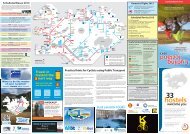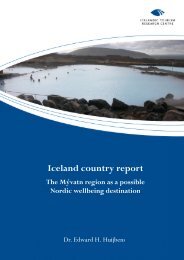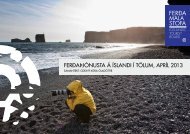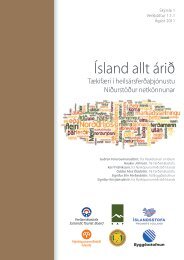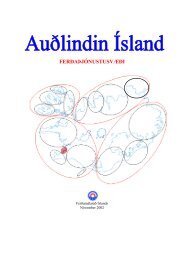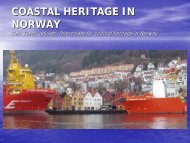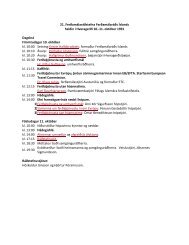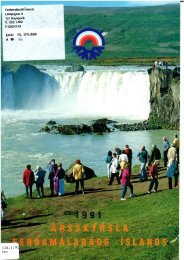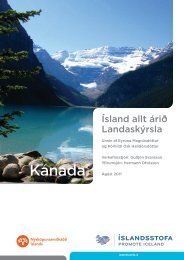Untitled
Untitled
Untitled
Create successful ePaper yourself
Turn your PDF publications into a flip-book with our unique Google optimized e-Paper software.
Even though the Earth is mentioned the general orientation in social<br />
science and theory, is to ontologically transform it into space and other<br />
spatial conceptual objects like “regions”, “landscapes” and “places”. This<br />
“de-earthification” has also involved a further move of space, together<br />
with its neighbouring concept place, towards the reference plane of the<br />
social. Not only has this effectively erased the concept of the Earth, but it<br />
has also meant an increasing theorization of space as “socially<br />
constructed”. It is, we believe, this “de-earthified social spatialism” that,<br />
through the usage of concepts like place and space understood as “socially<br />
constructed”, has become more or less taken-for-granted in social science.<br />
The “cultural turn” of the 1990s and onwards, of society and space, and<br />
other spatial units like landscape, does not change much in essence. It does<br />
not depart from social spatialism, but takes it even further, as this more<br />
recent example illustrates:<br />
This ‘new (global) cultural economy of space’, then, emphasizes a<br />
cultural negotiation and interpretation of newly emerging spatial<br />
patterns, relationships and impacts; it constitutes more of a culturecentred<br />
approach of space rather than one exclusively centred on the<br />
uneven geography of costs and revenues. The relevance of a cultural<br />
understanding and interpretation of the changing geographical schemata<br />
of changing socio-economic relations becomes more obvious and<br />
instrumental in the case of the landscape than any other spatial unit…<br />
(Terkenli and d’Hauteserre 2006, p. 4).<br />
In order to further push our inquiries into the alignment between<br />
tourism theory and the social we need now to re-visit to the theoretical<br />
heartland of social science.<br />
Tourism theory beyond social theory<br />
Modern social science and its social theories have always been elaborated<br />
variations on the premise of an existence of a distinct sphere consisting “of<br />
a specific sort of phenomenon variously called ‘society’, ‘social order’,<br />
‘social practice’, ‘social dimension’, or ‘social structure’ ” (Latour 2005, p.<br />
3), or something similar like “social system”, “social communication”, or<br />
“social space” (Luhmann 1995; Lefebvre 1991). As Latour puts it; “the<br />
social as normally construed is bound together with already accepted<br />
participants called ‘social actors’ who are members of a ‘society’ ” (Latour<br />
2005, p. 247). In the words of one of the founders of modern social theory;<br />
94



